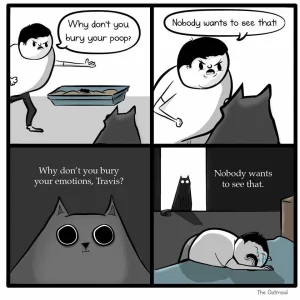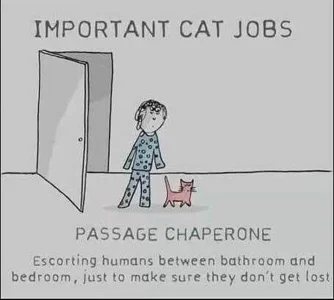You are using an out of date browser. It may not display this or other websites correctly.
You should upgrade or use an alternative browser.
You should upgrade or use an alternative browser.
Merkabah
- Thread starter Skarekrow
- Start date
More options
Who Replied?Ren
Seeker at heart
- MBTI
- INFJ
- Enneagram
- 146
The amazing conclusion is that both non-dual meditation and magic mushrooms produce very similar or the same mystical experiences by the same cognitive neuroscientific route.
( @Ren Want to experience OM?)
Hell yeah, gimme those shrooms Skareboy!
..... Wait a second! I'm already experiencing OM. That's how my Ni is wired, lol
Ren
Seeker at heart
- MBTI
- INFJ
- Enneagram
- 146
The ten factors that can accompany this state of flow are:
1. Having clear goals about what you want to achieve
2. Concentration and focus
3. Participating in an intrinsically rewarding activity
4. Losing feelings of self-consciousness
5. Timelessness; losing track of time passing
6. Being able to immediately judge your own progress; instant feedback on your performance
7. Knowing that your skills align with the goals of the task
8. Feeling control over the situation and the outcome
9. Lack of awareness of physical needs
10. Complete focus on the activity itself
I think I currently check 8 of those factors, which is probably a good sign!
More recently, as the work on OM has progressed and become more developed, I have reached closer and closer to the perfect harmony of my thinking with the content of what I'm writing about. One potential "negative" for the readers might be that my language becomes more and more difficult to decipher. I think that I have mitigated for that risk, however. But wait and see.
- MBTI
- INFJ
- Enneagram
- 954 so/sx
Skarekrow
~~DEVIL~~
- MBTI
- Ni-INFJ-A
- Enneagram
- Warlock
Hell yeah, gimme those shrooms Skareboy!
..... Wait a second! I'm already experiencing OM. That's how my Ni is wired, lol
Well...technically yes.
But wouldn’t you like to observe it within yourself from the perspective of another, but yet still “you”?
They’re in the post...shhhhhhh!!!!
Actually - https://www.magic-mushrooms-shop.com/en/magic-truffles-sclerotia.html
https://www.magic-mushrooms-shop.com/en/instant-grow-kits.html
Actually - https://www.magic-mushrooms-shop.com/en/magic-truffles-sclerotia.html
https://www.magic-mushrooms-shop.com/en/instant-grow-kits.html
I think I currently check 8 of those factors, which is probably a good sign!
More recently, as the work on OM has progressed and become more developed, I have reached closer and closer to the perfect harmony of my thinking with the content of what I'm writing about. One potential "negative" for the readers might be that my language becomes more and more difficult to decipher. I think that I have mitigated for that risk, however. But wait and see.
I can tell by the way you write sometimes...but that is good...it’s better to write it out and let people puzzle over it than to lose the momentum you have going - the flow.
You have to have something to explain in the second book Ren.
LMAO
John K
Donor
- MBTI
- INFJ
- Enneagram
- 5W4 549
Hell yeah, gimme those shrooms Skareboy!
..... Wait a second! I'm already experiencing OM. That's how my Ni is wired, lol
Yeah! No magic potion for Ren ‘cos he’s already full of good magic
John K
Donor
- MBTI
- INFJ
- Enneagram
- 5W4 549
Yes, we all must walk our own path, and most of the time by ourselves...but we don’t have to walk all of it alone if we should choose not to.
Yes - good qualification Skarekrow. I didn’t mean we should walk our own path in isolation, only that it has to be our own and not someone else’s path
Skarekrow
~~DEVIL~~
- MBTI
- Ni-INFJ-A
- Enneagram
- Warlock
Yeah! No magic potion for Ren ‘cos he’s already full of good magic
He certainly is...which is why it would be all the better!
Now that is a video I REALLY want him to make, hahaha.
( @Ren )
It would be highly enlightening to hear his thoughts regarding it though.
Yes - good qualification Skarekrow. I didn’t mean we should walk our own path in isolation, only that it has to be our own and not someone else’s path. I recently joined a local contemplative prayer group near where I live. Sounds like a contradiction meditating in company but it works - it gives atmosphere and a rhythm and - best of all - companionship.
That makes total sense.
And yes...we all must walk alone...but we can talk to each other and walk along side each other for how ever long we so happen to be walking in a similar spot that just so happens to bring us together into some rather coincidental meetings sometimes.
I think that group sounds great!
JennyDaniella
Stargazer
- MBTI
- INFJ
- Enneagram
- 925
Let’s all try to remember the reason for the season!!

Haha! It took me a good minute to finally see it!
Praise ze Lord!
Skarekrow
~~DEVIL~~
- MBTI
- Ni-INFJ-A
- Enneagram
- Warlock
Haha! It took me a good minute to finally see it!
Praise ze Lord!
He works in mysterious ways....
Thank you Jenny for all the likes!
John K
Donor
- MBTI
- INFJ
- Enneagram
- 5W4 549
They do, they do!! Stayed at my brothers last week and his cat insisted in showing me where the loo was in the middle of the night - and waited outside the door to make sure I was OK
Skarekrow
~~DEVIL~~
- MBTI
- Ni-INFJ-A
- Enneagram
- Warlock
Yep...it’s very important!They do, they do!! Stayed at my brothers last week and his cat insisted in showing me where the loo was in the middle of the night - and waited outside the door to make sure I was OK
Hahaha
Most would prefer you did not close the door...but that is where I draw the line...
Skarekrow
~~DEVIL~~
- MBTI
- Ni-INFJ-A
- Enneagram
- Warlock
This one totally cracked me up.
I love the top - “You’re different and that’s bad!”
lmao
Impact Character
folding paper cranes ⭐
- MBTI
- inconcrete
- Enneagram
- 964
Yep...it’s very important!
Hahaha
Most would prefer you did not close the door...but that is where I draw the line...
Skarekrow
~~DEVIL~~
- MBTI
- Ni-INFJ-A
- Enneagram
- Warlock
Very incredible stories...I don’t know how people can just write such things off as having no medicinal value.
Watch and try and tell me that this isn’t helping people...most of them out of options.
Maybe one day it will become more commonplace...and the Ketamine treatments will not cost thousands of dollars which is putting them out of reach for most people.
But then again...these things could cut into the antidepressant pharmaceutical market which I’m sure is some nice bread and butter for someone who owns lobbyists...so it’s no surprise that such companies are trying to keep the treatment patents and medicine access limited exclusively to themselves - as has been the case with the synthetic version of psilocybin and the “treatment” company that wants exclusivity so they can charge an arm and a leg...fuckers.
Too bad all this shit grows naturally and you cannot stop that.
(Also I take issue with Ketamine being called a “club drug” in the description...it is a very common drug used during anesthesia, sometimes conscious sedation.)
Enjoy!
Watch and try and tell me that this isn’t helping people...most of them out of options.
Maybe one day it will become more commonplace...and the Ketamine treatments will not cost thousands of dollars which is putting them out of reach for most people.
But then again...these things could cut into the antidepressant pharmaceutical market which I’m sure is some nice bread and butter for someone who owns lobbyists...so it’s no surprise that such companies are trying to keep the treatment patents and medicine access limited exclusively to themselves - as has been the case with the synthetic version of psilocybin and the “treatment” company that wants exclusivity so they can charge an arm and a leg...fuckers.
Too bad all this shit grows naturally and you cannot stop that.
(Also I take issue with Ketamine being called a “club drug” in the description...it is a very common drug used during anesthesia, sometimes conscious sedation.)
Enjoy!
Taking Ayahuasca to Heal Addiction and Depression
(Episodes 1 & 2)
Shaman and ex-bank robber Steve Hupp works with people seeking to purge themselves of severe emotional and physical issues,
ranging from PTSD and abuse, to addiction and depression.
Correction to Steve's quote at 0:53: Meth is a Schedule II drug, not a Schedule I drug.
(Episodes 1 & 2)
Shaman and ex-bank robber Steve Hupp works with people seeking to purge themselves of severe emotional and physical issues,
ranging from PTSD and abuse, to addiction and depression.
Correction to Steve's quote at 0:53: Meth is a Schedule II drug, not a Schedule I drug.
The Experimental Ketamine Cure for Depression
Could the club drug, ketamine, be the best hope for curing chronic depression?
Every year millions of Americans struggle with major depression, but 30% of these people don’t get any better on anti-depressants.
However, low dose ketamine infusions can offer complete relief from depressive thoughts and feelings in as little as 1-2 hours.
Though the FDA hasn’t approved ketamine for psychiatric disorders,
pioneering doctors have been administering ketamine in a practice known as “off-label” treatment in clinics popping up across the country.
But with no FDA approval, no oversight, limited data and no regulations,
some medical professionals are concerned patients are essentially lab mice, not realizing the potential risks with this “miracle drug.”
Could the club drug, ketamine, be the best hope for curing chronic depression?
Every year millions of Americans struggle with major depression, but 30% of these people don’t get any better on anti-depressants.
However, low dose ketamine infusions can offer complete relief from depressive thoughts and feelings in as little as 1-2 hours.
Though the FDA hasn’t approved ketamine for psychiatric disorders,
pioneering doctors have been administering ketamine in a practice known as “off-label” treatment in clinics popping up across the country.
But with no FDA approval, no oversight, limited data and no regulations,
some medical professionals are concerned patients are essentially lab mice, not realizing the potential risks with this “miracle drug.”
Last edited:
John K
Donor
- MBTI
- INFJ
- Enneagram
- 5W4 549
This one totally cracked me up.
I love the top - “You’re different and that’s bad!”
lmao
But it gives great advice bottom right - looks like the lady got the message and became the high priestess lol
Skarekrow
~~DEVIL~~
- MBTI
- Ni-INFJ-A
- Enneagram
- Warlock
But it gives great advice bottom right - looks like the lady got the message and became the high priestess lol

Impact Character
folding paper cranes ⭐
- MBTI
- inconcrete
- Enneagram
- 964
But it gives great advice bottom right - looks like the lady got the message and became the high priestess lol
I'm a bit alarmed that a cat (that found her) is involved in it as well xD
















